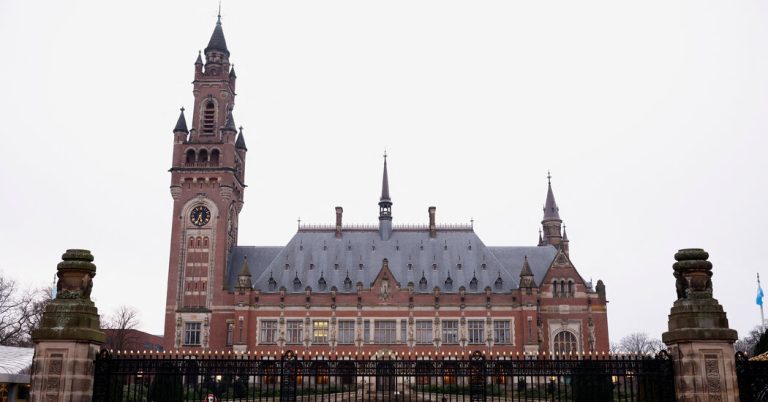Nicaragua, a longtime supporter of the Palestinian cause, is expanding its legal battle over the Gaza conflict at the International Court of Justice by suing Germany, a major arms supplier to Israel.
Nicaragua argues in its filing that “Germany facilitates the commission of genocide” in Gaza and violates the Genocide Convention by providing Israel with military and financial aid. It calls for emergency measures ordering Berlin to end its wartime support for Israel.
In hearings starting Monday at the Hague tribunal, Nicaragua is also expected to confirm that Germany allows serious violations of the Geneva Conventions by Israel, in particular the obligation to protect civilians during armed conflicts.
The case brought by Nicaragua raises new questions about the responsibility of countries that have supplied weapons to Israel for the war in Gaza.
Lawyers say Germany – Israel’s second-largest arms supplier after the United States – is an easier target for a suit than the United States. Germany has granted full jurisdiction to the International Court of Justice, the highest court of the United Nations. But the United States denies its jurisdiction, except where Washington expressly consents.
The Nicaraguan case is the third before the court this year dealing with the Israeli-Palestinian conflict.
South Africa first sought emergency measures from the court, arguing that Israel was at risk of committing genocide, a claim the court found plausible but Israel vehemently denied. The court ordered Israel to ensure that its citizens and soldiers do not violate the Genocide Convention, to which Israel is a signatory. The Convention prohibits actions aimed at destroying, in whole or in part, a national, ethnic, racial or religious group.
South Africa has also applied to the ICJ regarding the famine in Gaza and obtained a new ruling ordering Israel to allow the delivery of food, water and other vital supplies “without delay”. Despite the court’s power, it has no means of forcing Israel to comply with its orders. Israel has categorically denied accusations of deliberate starvation in Gaza.
In February, the court also heard a case requested by the United Nations General Assembly on the legality of Israel’s occupation of Palestinian territories. These hearings, scheduled long before the war, were heard by more than 50 countries, most of which expressed anger and frustration at Israel’s attacks on Gaza and the worsening death toll among civilians, many of them children.
Nicaragua’s case is much broader in scope than South Africa’s, alleging violations of both the Geneva Conventions and the convention against genocide and requiring the protection of civilians. It also accuses Israel of other “illegal” behavior in the occupied territories.
The court has not yet accepted the case, but is obliged to react quickly to requests for emergency measures, as in this case.
Israel, which is not a party to the dispute between Nicaragua and Germany, will not appear before the court at the hearings this week, which are expected to last two days. Germany is expected to respond to the Nicaragua case on Tuesday morning.
The recent flurry of activity at the courthouse has put it in the rare spotlight. Lawyers say the countries have turned to the court because efforts by the United Nations and other negotiators have so far failed to end the war in Gaza.
“The ICJ is not going to end the war in Gaza, but it is a diplomatic tool used by foreign policy to put additional pressure on Israel,” said Brian Finucane, senior adviser at the International Crisis Group, a conflict resolution think tank. . . “In the case of Nicaragua, it puts further pressure on Germany.”
of Nicaragua The government itself faces sanctions for repressive policies at home. A special United Nations report last month said the government’s numerous abuses, including the jailing and deportation of opposition figures as well as Roman Catholic clergy, “amount to crimes against humanity.”




